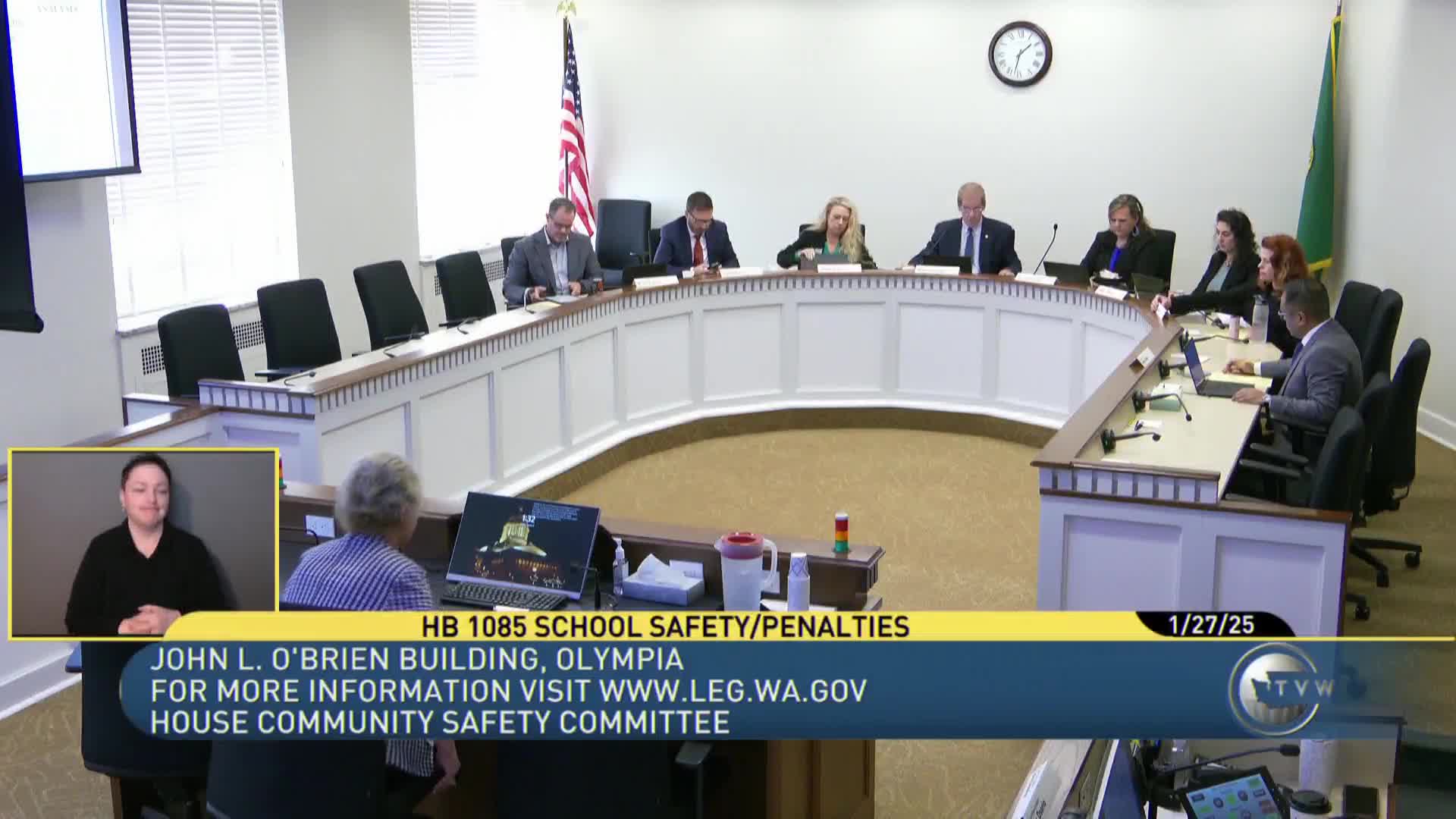House committee hears bill to strengthen penalties for assaults, intimidation at school sporting events
Get AI-powered insights, summaries, and transcripts
Subscribe
Summary
Representative Schmidt, prime sponsor of House Bill 1085, briefed the House Community Safety Committee on Jan. 27 on proposed expansions to the state’s school-related offenses to protect athletic officials, school employees and students.
Representative Schmidt, prime sponsor of House Bill 1085, briefed the House Community Safety Committee on Jan. 27 on proposed expansions to the state’s school-related offenses to protect athletic officials, school employees and students.
The bill would broaden the existing gross-misdemeanor offenses for “interference by force or violence” and “intimidation by threat of force or violence” to explicitly cover employees and contractors of public and private elementary and secondary schools, students, and volunteers serving as officials for extracurricular athletics. It would increase the maximum penalty for interference by force or violence to a fine of up to $1,000 and confinement for up to 364 days and require the Office of Superintendent of Public Instruction to develop standard signage notifying the public of the offenses and penalties.
Why it matters: Sponsors said the measure targets violence and threats directed at sports officials and other school personnel and is intended to protect students’ extracurricular opportunities. The bill would also allow schools to exclude a public school student from participation in extracurricular athletic activities for up to 12 months if the student interfered by force or violence during that activity; an amendment briefed for the committee would make that exclusion available to private school students as well.
Supporters at the hearing described a pattern of threats and assaults on volunteer and paid officials. Bob West, a long‑time referee who testified remotely, described being “head butted by a high school wrestler and knocked unconscious” and said he “underwent four neck surgeries” after the 1996 incident; he told the committee the bill “would act as a deterrent” and urged committee members to move it forward. Cindy McMullen, a member of the Central Valley School Board and the WASDA legislative committee, said school districts rely on officials for fair competition and “they must be protected.”
Several representatives of officiating associations and former officials recounted assaults and declining staffing of officials. Peyton Coffin, who identified himself with the Baseball Empires Association, recommended expanding protections beyond school settings to cover civic and club officials, and Hugh (Hubert) Bergenheimer, president of the Western Washington Wrestling Officials Association, urged passage, saying some officials “have quit refereeing due to threats or intimidation.”
Concerns raised: Max Kaufman, managing attorney at TeamChild, said the bill’s definitions could allow nonviolent or ambiguous conduct to be treated as intimidation and lead to lengthy exclusions from extracurricular activities, with disproportionate effects on youth. He warned that vague statutory language could convert minor incidents into “life changing consequences” for students. Roz Thompson of the Association of Washington School Principals raised questions about who would pay for signage, which events are covered (athletic only or all extracurricular events), enforcement and how the bill would preserve principals’ professional discretion on discipline.
Committee response and next steps: Committee staff noted an amendment sponsored by Representative Griffey (Lang 078) that would extend the 12‑month exclusion to private school students. Chair Goodman said testimony on HB 1085 would be limited because the measure had been unanimously reported out previously and the committee faces other measures with substantial disagreement; the committee closed the public hearing and said discussions with sponsors and stakeholders could continue.
Votes at the hearing: public hearing only; no committee vote or formal action was recorded.
